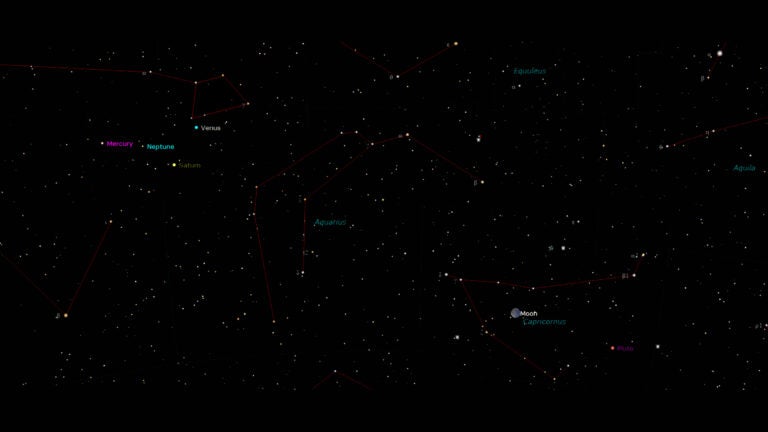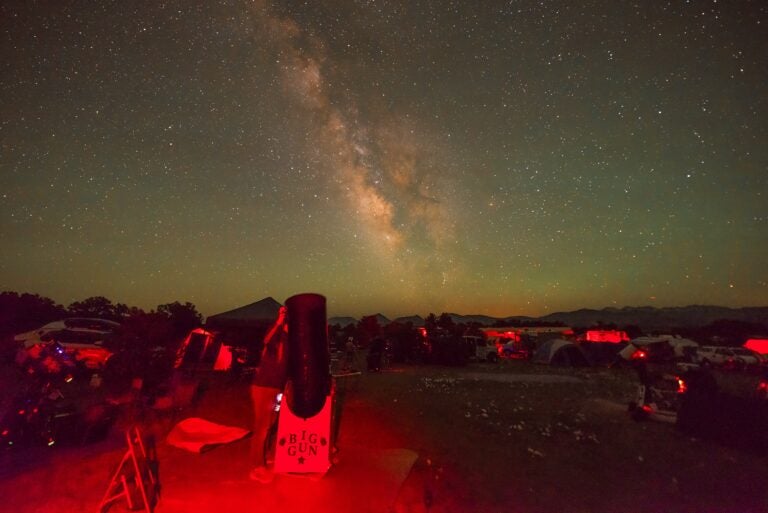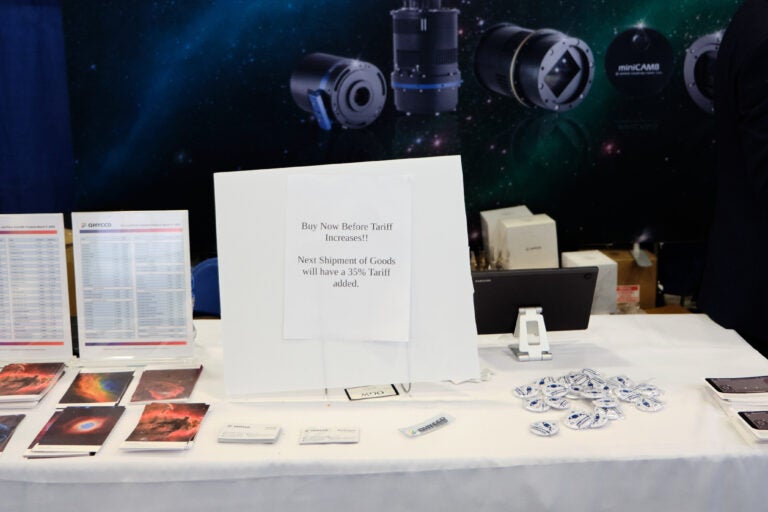In 1969, Elisabeth Kübler-Ross introduced her five stages of grief experienced by people who are facing life’s tragedies. But those five now-famous stages — denial, anger, bargaining, depression, and acceptance — have been overlooked by backyard astronomers.
Say you’re an observer in a typical suburban location. You’ve spent a small fortune on a telescope that looks so cool, you gaze at it like it’s a Rembrandt. Tonight, you’ve invited over an old friend you’d like to impress; you’ve heard she owns some mountaintop acreage, and you fantasize she’ll let you build an observatory there. So you aim your telescope at Saturn, arguably the universe’s greatest crowd-pleaser.
But to your horror, it’s not there. In its place is a wiggly smudge that resembles an amoeba on amphetamines. You’re tempted to explain that the problem is called “bad seeing,” but you’re too bummed to form coherent sentences. As you sense your mountaintop observatory slipping away, you’re overwhelmed with grief at the loss of your dreams. So perhaps Kübler-Ross can come to the rescue. You mentally scroll through her list and remember her first item: denial. Worth a try.
“Nothing’s wrong with Saturn,” you explain as your friend squints through the eyepiece. “Instead, Earth’s atmosphere is animating it through the gift of turbulence, the same helpful gaseous motion that makes you puke on a jetliner. After all, if Saturn were motionless, it might seem lifeless and sterile.”
But a glance at your unimpressed visitor suggests you try something else. “Bad seeing is actually a venerable astronomy tradition,” you say with a touch of pride. “When Galileo had conditions like this in 1610, it made him sketch Saturn as a ball that had two handles attached, an illustration that’s been prized for centuries. See if you can visualize the planet the way he did — as a sugar bowl!”
“A sugar bowl?”
“Yes! And we could even see even more history-making sights if I had an observatory on a mountaintop somewhere,” you subtly hint. But you’re not succeeding and it’s making you irritated. Anger, you suddenly realize, is next on the list of stages. That must be the key!
“This sucks!” you loudly bellow, making your companion leap backward. Creatively, you decide to channel that Kübler-Ross-approved rage toward your next-door neighbor, who just installed security floodlights brighter than prison watchtowers. You grab your phone and leave him a message citing legal property rights, the Dark Sky Association, and Italian phrases you think sound intimidating but later realize are just cookbook expressions like al dente.
So, forget that. You turn to the next stage: bargaining! Okay, but with whom? You’ve not been to church in years and, anyway, you don’t have anything valuable to offer the Creator in exchange for steadying the atmosphere — so you settle on bargaining with a used telescope website. You dial their number and when someone answers, you start haggling, knowing smaller apertures are better in turbulence. “I’ll trade you my 6-inch Dob for a 2-inch handheld, telescoping spyscope,” you offer.
But wait! If you end up with just a tiny instrument, why would your friend give you land for an observatory? “Never mind!” you shout into the phone, ending the exchange with a confused after-hours janitor who’d assumed that by “Dob,” you’d been trying to give him your Doberman pinscher. And now you’re down to the penultimate grief-assuaging strategy: depression.
As you fall into a deep malaise, you suddenly realize what astronomers have known for 413 years: Wiggly, depression-inducing seeing is so widespread, you have no choice in the matter. A smile creeps across your face, the expression common to observers through the centuries. Finally, you know its name and cause.
It’s called acceptance!










